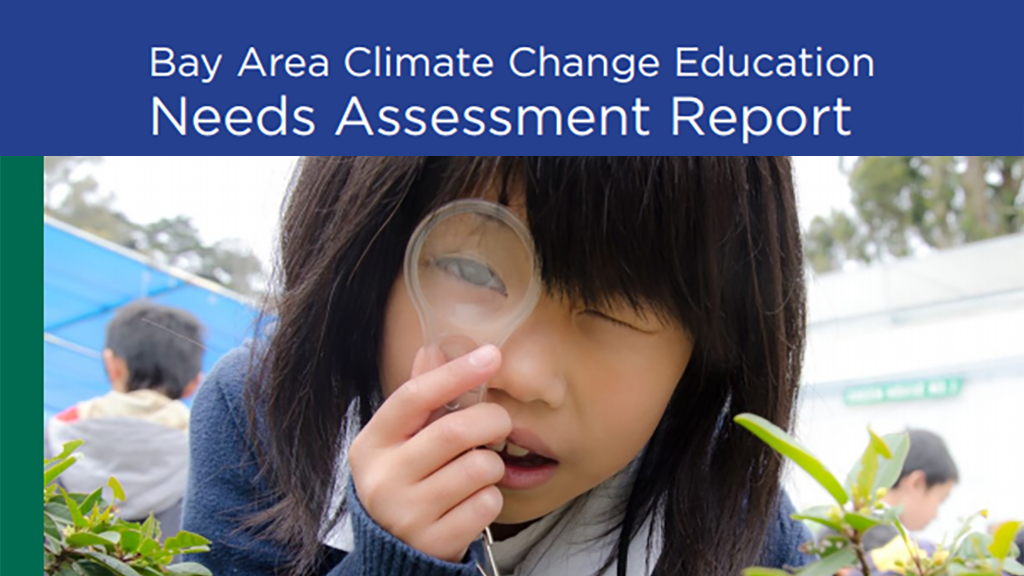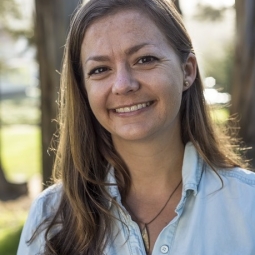Bay Area Educators Find Unique Challenges and Opportunities in Climate Change
Publication Date
Image

Story/Content
The issue of climate change presents unique and oftentimes difficult challenges to those of us working to combat it. Given the controversy and scale of climate change, it’s easy to see that effectively teaching about the topic would present its own set of barriers and challenges. But what exactly are those challenges and barriers in our region? And what are the greatest needs facing environmental educators grappling with climate change in the Bay Area?
Over the past six months, the Institute has conducted over 75 interviews with environmental educators representing 44 different organizations within the Bay Area to try and answer these questions. The purpose of these interviews was to paint a picture of the current landscape of climate change education in the region, identify common needs and challenges, and explore opportunities to support informal educators in tackling this topic.
In this effort, we are excited to announce the release of our newest report: Bay Area Climate Change Education Needs Assessment Report.
This report shows that environmental educators in the region are deeply committed to climate education. Seventy-eight percent of assessment participants reported that they are either currently implementing or are in the process of developing some form of climate programming. However it is interesting to note that these programs ranged from entire outreach initiatives based on climate change to one docent-led hike per year or lecture on the topic.
At the same time, environmental educators are facing a number of similar challenges to implementing effective, high-impact climate literacy programs. This assessment found that the primary needs and challenges could be broken into the following categories:

While these challenges may seem daunting, Bay Area educators are also committed to working as a group to address and overcome these barriers. We plan for this report to spark conversation, analysis, and action around how we can work as a community to support each other in addressing this crucial topic. We ask that you read this report with an eye to identifying opportunities and solution, and that you share it with your network of educators, engaging your colleagues in the discussion.


